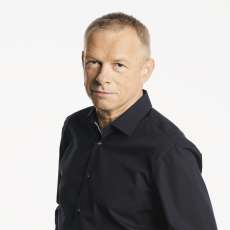GEO Solar has been created by associates of GEO Renewables, a company involved in the development, design and construction of large wind farms for over 15 years. The company serves the residential sector through an exclusive partnership with IKEA, as part of their Solar Energy offer for homes as well as commercial and industrial facilities, and is involved in development and construction of utility scale PV installations in Poland.
The solar segment is expected to boom in Poland in the period to come. What created these favorable circumstances?
It has not been smooth sailing in the past, especially if we consider the green certificates system that we used to have in place. While this stimulated the development of RES, the fact that the government withdrew their support in 2016 severely affected the prices of green certificates, which fell from 200 PLN (€47)/MWh to about 20 PLN (€4,7)/MWh.
Prices have recovered since and the system is still in place for assets that were developed in the respective period. But a new auction based system has been implemented in the meantime. One basket is dedicated to renewable generation below 1 MW, so photovoltaics can benefit from this support as well.
Has there been any concrete progress since the auction system was implemented?
So far three auctions have been held and we are approaching a total of 1,000 MW of photovoltaics which have been awarded. Not all of them are operational yet (maybe some will not even come to fruition) but this is the total amount that is theoretically supported through the scheme. This is just the beginning, as in 2019 we expected another 750 MW to be auctioned.
How do you assess the effectiveness of this support system? Are there any downsides you noticed?

The only downside I can point to presently is the fact that only PV projects below 1 MW can participate in these auctions. In theory you can participate in auctions with bigger capacities but then you would be competing with wind, which is rather unfair competition because wind is cheaper to generate.
But it is no doubt a positive measure, the market would surely develop at a much slower pace in the absence of this system. Overall there is significant support offered to renewable energy, for instance the program “Moj prad” (My Energy) has been introduced in 2019 and offers 5,000 PLN to prosumers. There is dedicated support for renewable energy in agriculture and also rather substantial EU funds. In Poland, if you are looking for a form of subsidy in terms of renewables, chances are you will find it.
Does that mean that the state’s attitude is generally in favor of RES development, compared to three years ago?
It is difficult to give a firm answer on this. While there are many positive developments, there are also measures which have discouraged the development of RES, for instance the 10H rule for wind generation. It was implemented in 2016 when the crisis took place and there is a lot of talk about changing it (especially now that technology allows for development of turbines well above 3 MW) but without any real progress. Since 2016 we have seen close to no development in the onshore wind sector.
What is your outlook for the overall sector in the coming few years? We found a lot of optimism among offshore wind players for instance.
We will see new onshore wind capacities post last year’s auctions, however, we could have bigger projects and cheaper energy if we would be allowed to update the technology to the most recent one. Offshore, I trust projects will come to fruition but they will likely take longer - it is important to allow Western investors to participate in these projects and leverage their experience. Generally yes, this change is coming, there is no turning back. There might be some trouble but only if unexpected regulations fall on our plates again, which at this stage is most unlikely.

If nothing changes photovoltaics will boom to unexpected proportions. PV projects are easy to develop, getting financing is easier than ever and we have also reached grid parity. There is nothing really that can stop this development.
How does GEO Solar plan to capitalize on these opportunities?
We are active in all segments of photovoltaics, for instance through our partnership with IKEA we do significant work in the residential sector. We also handle commercial and industrial facilities, a market that is divided between micro-installations (anything up to 50 kWp) and anything above, that requires proper environmental and construction permits.
PVs on a small scale are so popular nowadays that the landscape is incredibly competitive - the challenge therefore is to find differentiating factors, as killing each other on prices is not the way. One thing that makes us stand out is the fact the we give five years productivity guarantee and we hope that after these few years in the market we will get more brand recognition.
Do you have a final message for investors that are eyeing the Polish market?
We have seen a big change in perception of the Polish market recently, from where we were just after the changes in 2016 and the GC depreciation, when the level of trust in renewables was very low.
Now we see that RES have become a fashion, Polish renewables once again have gained trust of foreign capital so the message is come invest. Yes, we will need conventional sources for a while still, but their role will diminish soon - there is a lot of money to be m





